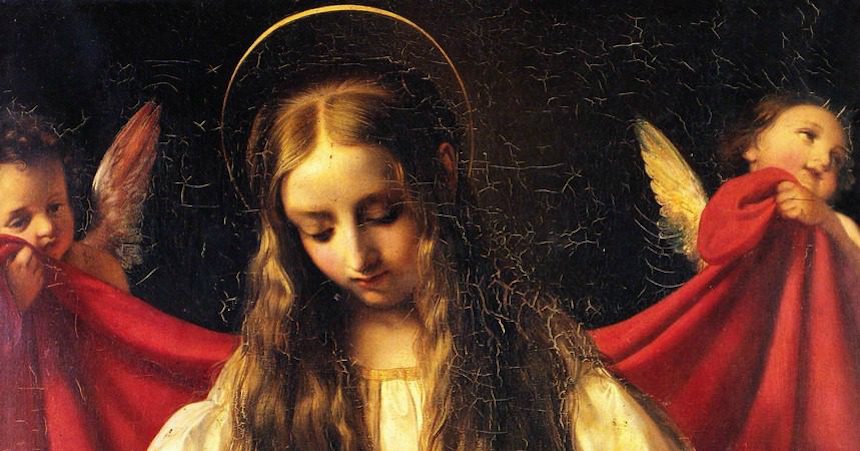The Great Divorce: Chapter 12


Summary
The branches of trees down one aisle of the forest dance with light and Lewis thinks there must be another river nearby. It turns out the light is coming from people in a procession. Lewis tells us that “If I could remember their singing and write down the notes, no man who read that score would ever grow sick or old”. Behind them came a beautiful lady in whose honour all this was being done.
Lewis whispers to MacDonald, “Is it? … is it?”. His teacher responds that it’s actually a lady from Golders Green named Sarah Smith, who is “one of the great ones” in this country. MacDonald identifies some of the people in the procession as angels, and others as “her sons and daughters” who were any child she met on earth. She is also surrounded by animals: cats, dogs, birds and horses. MacDonald explains that “Every beast and bird that came near her had its place in her love. In her they became themselves. And now the abundance of life she has in Christ from the Father flows over into them.”
The Lady moves towards “two phantoms: a great tall Ghost, horribly thin and shaky”, whom Lewis dubs “The Tragedian”, who is being led on a chain by another Ghost who is “no bigger than an organ-grinder’s monkey”. When they meet, despite the Tragedian being the one who speaks, the Lady addresses only the Dwarf Ghost. She kisses him and asks for his forgiveness “For all I ever did wrong and for all I did not do right since the first day we met”. The Dwarf shakes the chain and the Tragedian responds, saying he accepts her apology.
The Tragedian says that he’s been thinking only about her “all these years…breaking your heart about me”. In a small, bleating voice, the Dwarf Ghost asks if she missed him. When the Lady tells him that he’ll understand it soon enough, the Dwarf and Tragedian speak in unison to each other, saying that she didn’t answer the question. It is at this point that Lewis “realised then that they were one person, or rather that both were the remains of what had once been a person”, Sarah’s husband, Frank. The Dwarf and the Tragedian tell each other that “it would be rather fine and magnanimous not to press the point” but they aren’t sure if she’d notice, recalling a time when they let her have the last stamp and she didn’t “see how unselfish we’d been”.
The Dwarf and the Tragedian are shocked to find out that the Lady has been happy in Heaven without him. The Tragedian asks here if she even knows the meaning of the word “Love”! The Lady responds: “How should I not?.. I am in love. In love, do you understand? Yes, now I love truly”. Rather than being comforted by this, the Tragedian asks if this means she didn’t love him on earth. The Lady says she did but “only in a poor sort of way… mostly the craving to be loved… I needed you”. The Tragedian is horrified at the idea that she no longer needs him, even though she says that “We shall have no need for one another now: we can begin to love truly”.
The Tragedian, becoming even more melodramatic, laments “Would to God I had seen her lying dead at my feet before I heard those words”. The Lady tries to snap him out of it by saying to the Dwarf “Frank! … Look at me… What are you doing with that great, ugly doll? Let go of the chain. Send it away. It is you I want. Don’t you see what nonsense it’s talking?”. Her message seems to get through and he starts to smile and grow a little bigger.
Questions
Q1. How would you describe the procession? What is Lewis’ suspicion regarding the identity of the lady?
Q2. Who are the ghosts in this chapter? Why are there two ghosts, one of them on a chain? Why are the ghosts shocked to find that the lady has been happy in Heaven?
Q3. How does the lady describe her love for her husband on earth? How is it different now in Heaven?
Q4. How does the lady try to snap Frank out of the melodrama? Why might this work?